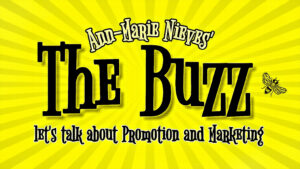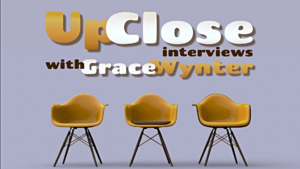Business
Here’s a question I put to myself while watching the unfolding drama about Olympic gymnast Jordan Chiles and her near-miss of, then award of, then loss of, and, now, appeal for reinstatement of, the bronze medal in floor exercise: Is there any occupation that is simultaneously as soul-crushing and soul-affirming as the process a writer goes through when getting a novel published?
To answer, first I considered athletes like Jordan Chiles: As most serious writers do, serious athletes train regularly and for a long time before they reach the top levels of their sport. Also, as with writers seeking agents, they have to vie for the best coaches. And whenever they compete in their sport, losses feel crushing, wins make them soar.
Then I thought of emergency room physicians: They, too, train for a long time, and vie to get into good schools, then for jobs in good hospitals. Whenever they lose a patient, they feel defeated, while saving a patient brings euphoria.
So, yes, a quick survey shows that there are some rough equivalencies here, and likely in other fields as well. But I think what writers endure is more emotionally extreme on an individual basis. Why? Because of the particular ways power is wielded in the publishing business, and by whom.
***
My first seriously soul-crushing experience happened in 2006:
Early in the year, the novel that had gained me representation and made me believe that I did, in fact, have the chops to be a professional novelist, failed to sell. This was not my first go-round with rejection; throughout 2002, I’d suffered through scores of agent rejections for my first completed manuscript, and responded by enrolling in an MFA program from ’03-’05, where I’d then written as my thesis the novel that got me my agent.
While that novel was in the months-long failing-to-sell process, I wrote another novel, called Souvenir. It was commercial fiction, a hybrid of Jodi Picoult’s issue-driven stories with the emotional resonance of, say, a Nick Sparks love story. That one went on submission in the fall and quickly sold at auction: a two-book deal, North American rights, for $310,000, and a piling-on of something like 16 or 18 foreign rights sales, many of them at auction as well, the largest being €100,000 from a German publisher for just the one book.
The reason I mention the money is to help illustrate how momentous this felt—especially given that I had never published anything anywhere in my life. More than that, I’d come out of a long spell of divorce, single-parenthood, seven semesters of college earning my BA and MFA, was almost 40 years old, and had significant school loan debt. I hadn’t just sold a novel, I’d SOLD A NOVEL! A novel that, according to all of these different publishers, was pretty damn good.
The honeymoon was glorious, and lasted until late the next year, when review copies of the book had gone out to the trades. You know: Kirkus, Booklist, Publishers Weekly, and Library Journal. These were, and still mostly are, the first-line influencers, whose reviews shape the perception of a novel and guide store and library purchases in advance of publication.
One afternoon I must have self-Googled, though I don’t recall for sure—and there was […]
Read MoreMe, walking into a cocktail party at a writer’s conference: I am confident in my writing ability. I have worked hard to improve my craft. I have insights and wisdom worthy of sharing. I deserve my seat at the publishing table.
Also me, walking into the same room: When is everyone going to figure out I’m a hack? I don’t deserve to be in this room.
Which one are you? Do you walk into a room full of writers and feel like you deserve to take up space in the publishing world? Or do fear being unmasked as an imposter?
Or maybe, like me, you do both.
Ever since I walked into my first writing workshop, I’ve been dangling from a pendulum that swings wildly between postures of confidence and crippling imposter syndrome. I believe it’s healthy to temper confidence with a bit of self-doubt, and I believe toxic self-doubt can be righted by remembering your true, honest accomplishments, even if they are small. I have trouble navigating the space between the two.
I’m still trying to figure out how to balance the confident fake-it-til-you-make-it mindset and imposter syndrome, but I’ve learned a few strategies that help me navigate the highs and lows.
Last month I turned in my third novel, The Forest Becomes Her, slated for publication in early 2026 from St. Martin’s Press. I’m already hard at work on my fourth novel, which is also under contract. Six years ago, I would have been giddy to know I would publish a novel. If someone had told me there would be four (and hopefully more) I would have passed out from joy.
But I also would have been skeptical. Why would anyone publish my novels? I’m a hack, I would have thought.
When I started working on my first novel manuscript, I embraced the fake-it-til-you-make-it approach to the publishing world. I believed in my book, but I didn’t have any relevant experience to include in a query letter. I looked at my unimpressive resume, and, instead of giving up, I decided to fill out my CV, one line at a time.
As I continued working on my novel manuscript, I entered contests. Flash fiction, short stories, novel excerpts. So many contests. Most of them led to disappointment, but I won several. I entered the wins into my scant author bio. Award-winning writer.
I submitted widely to literary journals, and, along with a pile of rejections, I received a few scattered acceptances, although, admittedly, they were all from smaller journals. I added these publishing credits to my bio. Published fiction writer.
I contributed essays to numerous websites that accept guest posts and wrote book reviews for a few websites. I was a blogger and book reviewer.
I volunteered to lead some small writing workshops. I was a workshop leader.
None of these minor successes involved platforms like Pulitzer or Ploughshares or The New York Times, but they were legitimate, hard-fought wins, and I was proud of them. I was making small inroads.
After a few years, the bio paragraph in my query letter began to feel respectable. I, however, wasn’t impressed. None of the lines in my bio were false. They weren’t exaggerations. I had won several writing contests, published a handful of essays, reviewed books, published short stories, and taught writing classes. […]
Read MorePlease welcome Michael Castleman to Writer Unboxed today! Michael is the author of 19 books, both fiction and nonfiction, the latest of which releases TODAY. The Untold Story of Books: A Writer’s History of Book Publishing is the first book to trace the 600-year saga of publishing from an author’s point of view, with emphasis on the possible joys and many perils of the 21st-century book business.
“Entertaining, fascinating, deeply researched, and crisply written, The Untold Story of Books is full of surprises. I worked in publishing for thirty years and was amazed how much I learned about the industry. No other book provides such a comprehensive and witty overview. The Untold Story of Books is a must-read for authors, aspiring authors, and anyone who loves books. The publishing industry is often shrouded in mystery. This book lifts the veil and provides a fresh, new, compelling perspective.”
—Mark Chimsky, former editorial director of Harper San Francisco, former director of trade paperbacks at Little Brown, and former editor-in-chief of the trade paperback division at Macmillan
We’re thrilled Michael is here to shine a light on a topic he knows well–the dark side of the business, and how we might avoid it.
Over the past decade, author scams have multiplied like the brooms in the Fantasia scene of Disney’s “The Sorcerer’s Apprentice.” WU has done an admirable job helping authors detect scams—and avoid them. But few authors appreciate why scams have recently become so prevalent. The reason is the advent of digital publishing, and its result, an unprecedented avalanche of books.
1980 Vs. Today: What a Difference!
To understand why scams have proliferated so insidiously, consider these numbers.
No wonder so many authors feel so frustrated about marketing their work.
No Single Path
Back in 1980, book publishing involved a single path from idea, to proposal, to agent, offer, contract, editing, acceptance, and release—with champagne. Book promotion depended […]
Read MoreYou’ve chosen a publishing service, engaged a marketing company, entered a writing contest, hired an editor, inked a representation agreement, or contracted with a publisher, hybrid or traditional.
You’re aware that there are no guarantees: your book won’t necessarily become a bestseller. Your story may not win the contest prize. Your agent may not find a home for your manuscript. But your expectation is that the person or company will keep their promises, adhere to timelines, deliver acceptable quality, and generally honor whatever contract or agreement you both have signed.
What if they don’t, though? What if, after paying out a lot of money and/or waiting in vain for a service to be completed and/or receiving a product too shoddy to use, you realize you’ve been conned? What are your options? What can you do?
This is one of the most frequent questions I receive at Writer Beware. It’s one of the hardest to answer, because the difficult truth is that there often is little recourse, especially if a lot of time has passed or the perpetrator is operating from a different country.
But it’s definitely not hopeless. There are actions you can take. Below are some suggestions.
GETTING YOUR MONEY BACK
Scammers generally don’t do refunds (never mind the money-back guarantees that many promise). You can certainly ask: it’s a reasonable starting point. Just be prepared to be refused, or promised a refund that somehow never arrives.
A more direct method, if you paid with a credit or debit card or via PayPal, is to dispute the charges. This doesn’t always succeed: if some degree of service was delivered, even incomplete and/or of poor quality, the decision may go against you. However, I’ve heard from many writers who’ve been able to get some or all of their money back this way.
You do need to be prompt. There’s a limited window to file disputes–which rules out situations where the scam only becomes apparent over a longer period of time (although, from personal experience, credit card companies will sometimes honor disputes beyond their deadlines if you can make a strong enough case).
Wire transfers, unfortunately, generally can’t be reversed: they are treated like cash transactions (which is why they’re popular with scammers). Payments via apps like Zelle or Venmo are also difficult or impossible to reverse. If you paid a scammer using these methods, contact your bank and ask them to place a fraud watch on your account.
If you used a credit or debit card, you should also consider contacting any one of the three […]
Read MoreGreetings, WU family! I’m pleased to be back with the latest in my Up Close series—a series designed to provide insight into the publishing industry from various stakeholders, including authors, agents, publishers, and today’s guest, a media strategist. A veteran of the publishing industry, Linda A. Duggins is the former Senior Director of Publicity at Grand Central Publishing/Hachette Book Group where she led successful national campaigns for authors such as Tayari Jones, Jane Goodall, and the late Octavia E. Butler. In her current role as an Independent Media Strategist, Linda helps authors identify their books’ key selling points and teaches them how to leverage media opportunities to build awareness and boost sales. In today’s Q&A, Linda offers valuable insight into crafting a clear and compelling message about your books and your writing.
GW: Thank you for agreeing to this Q&A. First, can you tell us a bit about your career in publishing as it relates to media and publicity?
LD: There has never been a time that I did not enjoy talking about books. Spreading the word about amazing reads that keep me up at night or make me think well beyond the last page has been an ongoing experience for me. Prior to my publicity role at Grand Central Publishing, as co-founder of the Harlem Book Fair, I spent a considerable amount of time pitching various stories about the book fair, the authors and their books, and information about the various organizations that supported the work around what the book fair entailed. I was that person on the subway in NYC passing out upcoming book event postcards and advanced reader copies to just about anyone who dared to look at me. The organic transition to becoming an in-house book publicist was challenging and very exciting. Getting the media and booksellers to pay close enough attention required strategy, effective people skills, perseverance, timing, and luck. There was plenty of reading, book campaign strategizing, meeting media professionals, book tour planning, and engaging with book club members as well as booksellers and librarians. It’s really a blended affair, with collaboration inside the publishing house as well, with editors, marketers, the creative team, sales, audio, and many others.
GW: What exactly is media training and how does it relate to authors, both self-published and traditionally published?
LD: Media training is a form of communication coaching designed to help an author navigate interactions with the media to effectively convey their message, handle interviews, and manage conversations about various topics including: the author’s backstory, writing career, and book details, just to name a few. With media training, the goal is to help authors learn how to keep the title of their books and the key selling points up front and top of mind during interviews.
Read MoreGetting a book-length manuscript to the finish line, polishing it, and launching it into the world require a single-minded focus–and a community of writers like this one to believe for us when the publishing journey gets rough. As a first-time author, I didn’t know what to expect. For a long time, no one was waiting for The Kindest Lie, so I had many years to stop and start, to play, and to delight in the fairy dust that is sometimes (if you’re lucky) sprinkled over a shiny debut. Then I signed a contract with William Morrow/HarperCollins for a second book, People of Means, which releases in February 2025. Anxiety took over, and I wondered if I could do it again. The second time around as an author isn’t easier, but I’m wiser and better prepared.
Here’s what I’ve learned:
You never master the craft. The book isn’t ready when you think it is.
After at least three years of writing workshops and several drafts of my first novel, I thought it was in good shape to send to agents in my quest for representation. Not so much. Following close to 100 rejections, I took a step back for a year-and-a-half and workshopped excerpts of my book at the Tin House Summer Novel Workshop and Kimbilio Fiction for African American writers. Then I engaged five writer friends to beta read for me. Only then did I get two offers of representation and choose the wonderful Danielle Bukowski of Sterling Lord Literistic. Subsequently, my fabulous William Morrow editor, Liz Stein, took my manuscript through three grueling rounds of edits.
When I began writing my second novel, I felt pretty confident that I knew what I was doing since I had done it once. Wrong! After sending early pages to Liz, I learned that the book needed a lot of work: structure, character development, relationships, motivations, and more. Under contract with a tight deadline, I didn’t have time to solicit beta readers or workshop the book. With Liz asking me lots of probing questions and helping me dig deeper, I revised multiple times until finally the book on the page came close to matching the vision in my head.
Life doesn’t pause for the publication of a novel. Don’t be afraid to ask for what you need.
I have a demanding day job leading corporate and internal communications for a large health care organization. Early in my writing days of my second novel, I got promoted to a director role and began leading a small team. The day job supports my writing habit, so no complaints there. But suddenly, I had more responsibilities, which made my writing time even more precious.
Soon after, my mother began to repeat the same stories and mail greeting cards more than once for the same occasion. A neurologist diagnosed her with Alzheimer’s, and I took on the role of caregiver. With a deadline for book two looming, I sold my mother’s house and moved her into a senior living community and helped her navigate this monumental life change. I desperately wanted to do it all, but I couldn’t. As a former journalist, I’m a stickler for deadlines but I knew I couldn’t meet this one. With great trepidation, I asked my […]
Read More
If you attended the opening night of last fall’s UnCon, you heard me tell of the career struggles and dismay I experienced in the wake of my 2022 novel’s release, and how I dug my way out of that hole by embracing the theme Therese Walsh had announced for conference: All In. Today’s post revisits that struggle, along with what came next.
*
Two years ago, for the second time in my 15-year, seven-novel writing career, an ineffective marketing plan led to anemic sales—which meant that I once again found myself at the bottom of a steep hill with a heavy rock to push if I was going to continue to have a fiction-writing career (where each advance, as well as retailer orders, are determined by the previous book’s sales). Did I want to keep writing novels and publishing them traditionally? I stood there looking up the hill. I nudged the rock to gauge its weight. I’d been writing fiction full-time since 2007. I knew exactly what it was going to take to push that rock up that hill again. I thought, Fuck it.
Yet, even as I lamented all the ways things hadn’t gone well and all the ways the industry is stupid, my brain just kept doing what it’s been doing since the days when Captain and Tennille ruled the radio stations: noticing things and people, wondering about them, fitting them into scenarios and then playing with those ideas as if they’re Rubik’s Cubes. IT…JUST…HAPPENS, even when I don’t necessarily want it to. So, what I needed was something to spark not the creativity for producing fiction, of which I have plenty, but rather the ambition to persevere despite the aggravations.
Perseverance is fueled by ambition, of one kind or another.
The spark eventually arrived in the form of a new story idea that, the more I explored it, felt like I’d found lightning in a bottle. I celebrated the return of those old familiar loves, Impatience and Excitement. If I could figure out how to transmute my idea into words on a page, I might have a rock worth pushing. I also recognized that if the book-to-be was going to get its best chance in the world, I needed to cancel my existing contract and find a publishing home that would be a better fit for my work. Doing this is not fun. But sometimes it’s necessary. I made a big commitment to clearing the decks and starting fresh. I went all in.
The universe sometimes seems to reward bold actions and difficult choices, and this was one of those times: soon after I made the big commitment, Amy Einhorn, an editor/publisher I’d admired from my earliest fiction-writing days, left Holt to restart the fiction line at Crown using a publishing model that promises careful attention to a small number of titles each year. It sounded like the perfect new home for me and the new book-to-be—an ambitious novel set in the chaotic wake of WW1 and inspired by my own family’s history. I wrote a detailed proposal and some sample pages, sent them to Amy (through my agent), we had a great conversation, and she offered me a contract, which I accepted. Then we lived happily […]
Read MoreAs a young writer, I worried so much about my ideas. I worried that I’d never come up with any that were special enough to build a novel around; I worried that if I did come up with one, someone else would “take” it. Several decades in, I now have a more balanced view, which is this: the main concept of a book, its idea, may be important, but it is also only a tiny fraction of what determines whether a book works. And there are countless ways to take the same central idea and write it into a book… or books.
A few years back I had the idea that someone should write “a matriarchal Game of Thrones”, and eventually, I decided that person should be me. After I decided to veer out of my established lane, from historical fiction into epic fantasy, the next decision was absolutely crucial. Would I write this fantasy as a series or a stand-alone?
I’d faced a similar decision years before, actually, when I first learned about the real-life trailblazing private detective Kate Warne and decided to pitch the idea to my publisher. Would the version of her story I wanted to write fit better into a single book-length work, or should it be a detective series, with each novel focusing in on one case?
In one of these situations, I decided on a stand-alone approach, and in the other, a series. If you find yourself facing the same decision–unsure whether your new idea needs a book or a series to do it justice–here are some questions I recommend asking yourself.
Does the genre I’m writing in welcome a series approach? This was key in both of my decisions. While there are certainly successful groups and series of novels in the historical fiction genre–think Philippa Gregory or Ken Follett–these tend to be the exception rather than the rule. If I wrote a series about Kate Warne, it would shift more into the detective/crime genre vs. biographical historical fiction. Conversely, in the epic fantasy world, the series format isn’t just tolerated but wholeheartedly embraced, so in that case, a series was a natural fit.
Does the story I want to tell need a broad canvas? This is where two people writing about the same idea can have a very different view of the story. What interested me about Kate Warne was a specific period (namely, between her getting hired as the first female private detective and when she saved Abraham Lincoln’s life on his way to his inauguration) rather than the idea of her solving cases over the course of multiple years and multiple books. I didn’t need more than one book to say what I wanted to say about Kate. But once I decided to build a fantasy world consisting of five queendoms, the ideas and characters and plots and possibilities just kept piling up and up and up. I’m contracted for three books in the Five Queendoms series but could write so many more.
How long can this story and these characters sustain my interest? We often think about what our readers have the appetite for, but we also need to think about our own interests and appetites. Ultimately, if you think the market would devour a series about […]
Read More




















